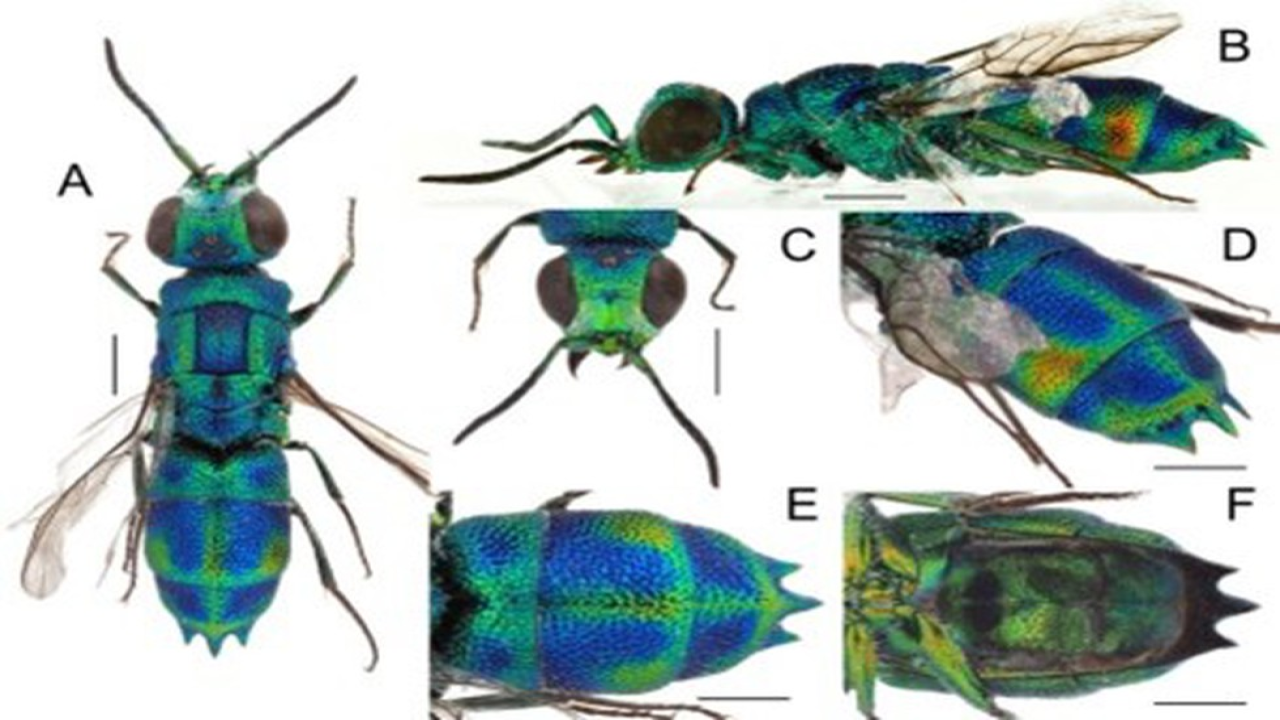Trichrysis poseidonia
Researchers from the Shadpada Entomology Research Lab at Christ College, Irinjalakuda, have made an exciting discovery in southern India – a new species of cuckoo wasp. The species has been named Trichrysis poseidonia after the Greek God of the Sea, Poseidon, due to apical abdominal teeth’s striking resemblance to his trident.
Cuckoo Wasps:
Cuckoo wasps, also known as jewel wasps, are a group of insects belonging to the family Chrysididae. They are known for their striking metallic colors and their kleptoparasitic behavior. These wasps do not build their own nests or collect their own food, but instead lay their eggs in the nests of other wasps or bees. Once the cuckoo wasp’s egg hatches, the larva feeds on the food intended for the host’s offspring.
Discovery of Trichrysis poseidonia:
The researchers from the Shadpada Entomology Research Lab discovered Trichrysis poseidonia during their surveys of the insect fauna in the Western Ghats, a mountain range in southern India. The wasp’s unique characteristics, such as the three sharp apical abdominal teeth that resemble Poseidon’s trident, immediately caught their attention.
The researchers carefully studied the new species and compared it to other cuckoo wasp species. They determined that it was a distinct species that had not been previously described.
Importance of the Discovery:
Discovering new species is an important aspect of biodiversity research. It not only helps us understand the complex relationships between species but also highlights the importance of conservation efforts. Trichrysis poseidonia is a unique species that may play a significant role in the ecosystem of the Western Ghats.
Additionally, the discovery of Trichrysis poseidonia provides an opportunity for further research into the behavior and biology of cuckoo wasps. As kleptoparasites, cuckoo wasps can have a significant impact on the populations of the host species. Studying Trichrysis poseidonia and its interactions with other wasp and bee species can provide valuable insights into the functioning of this ecosystem.
Month: Current Affairs - March, 2023
Category: Science & Technology Current Affairs


